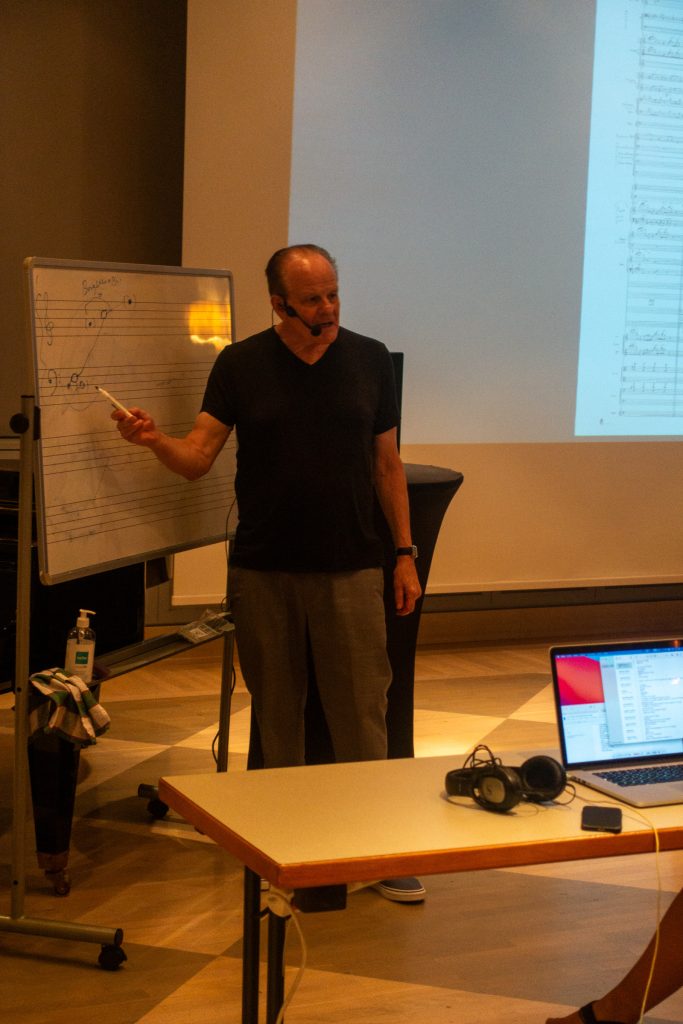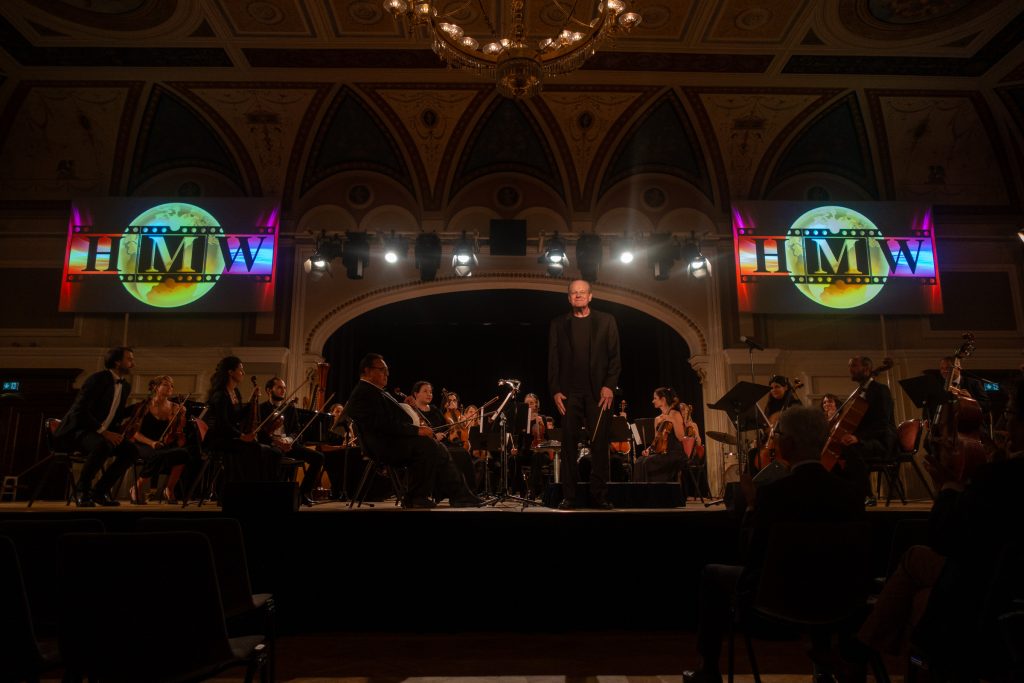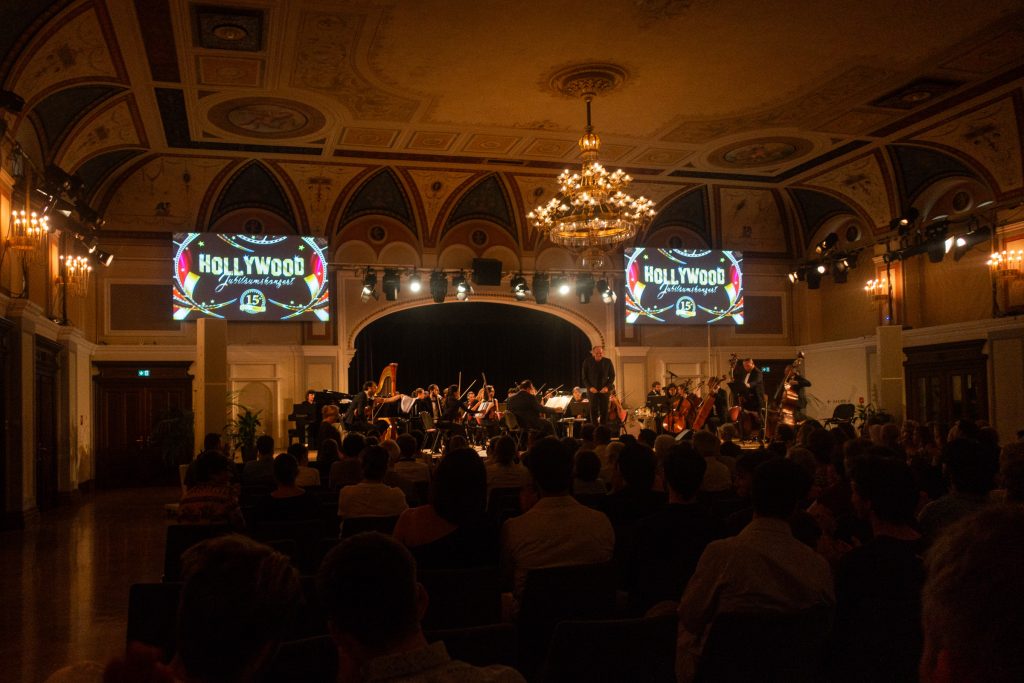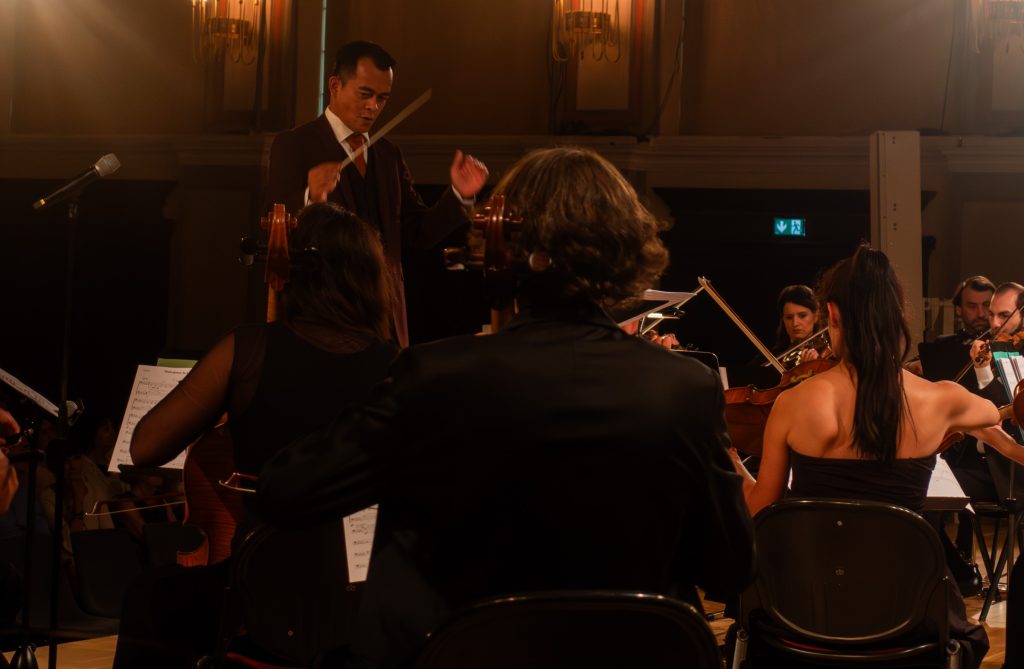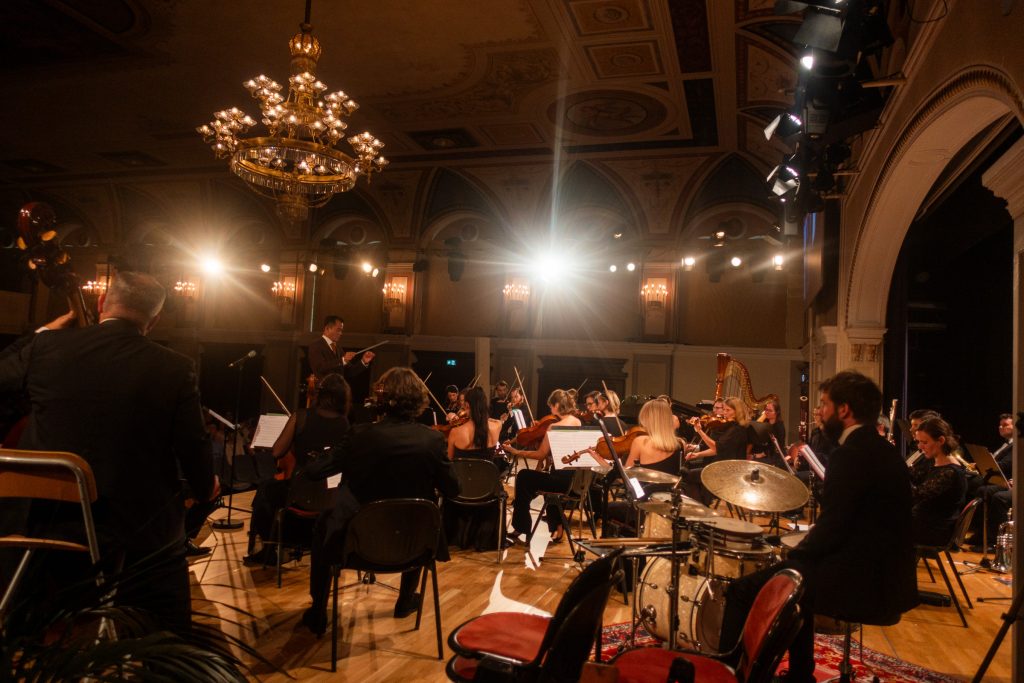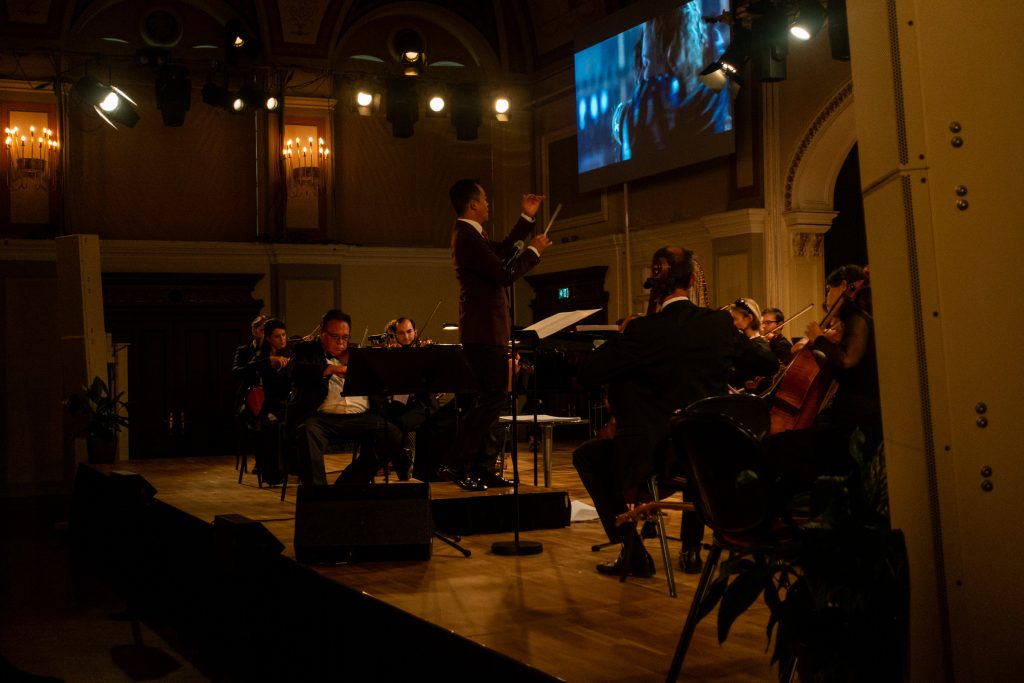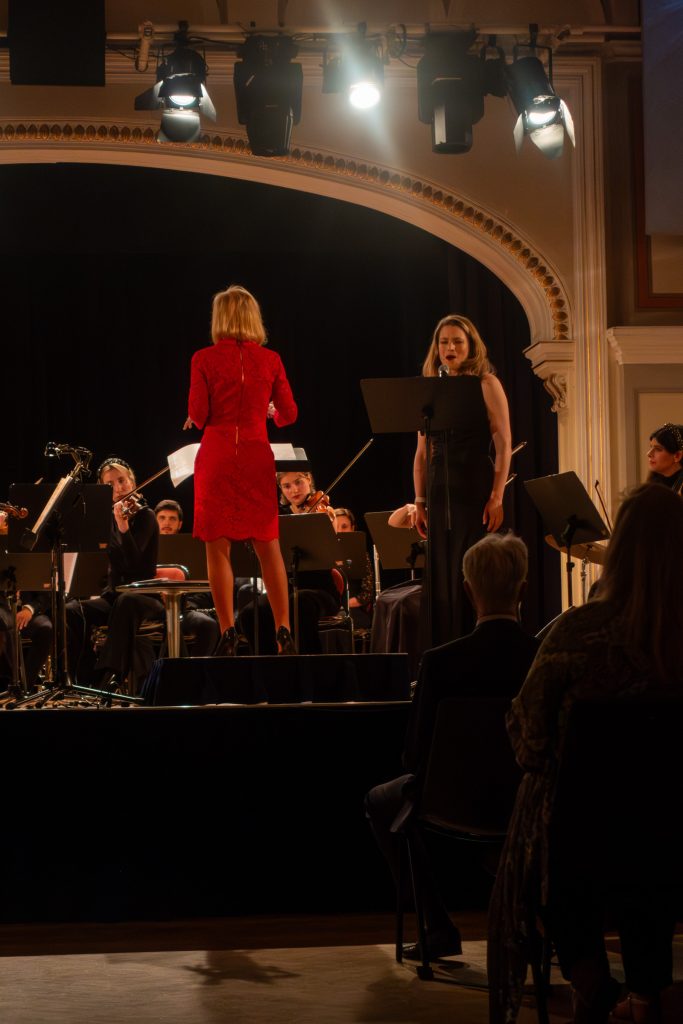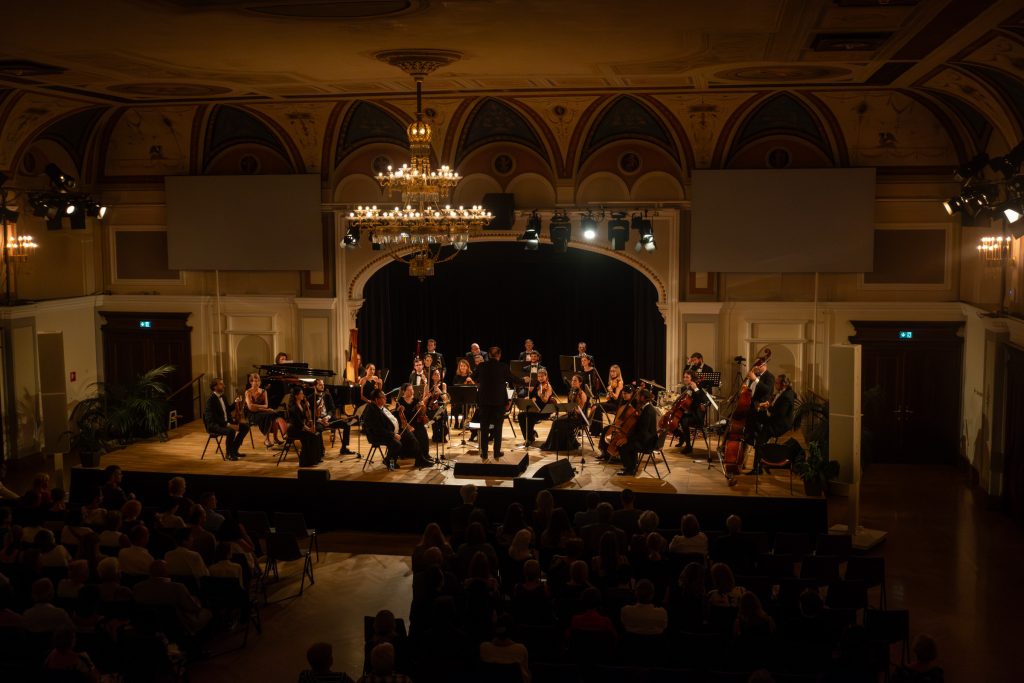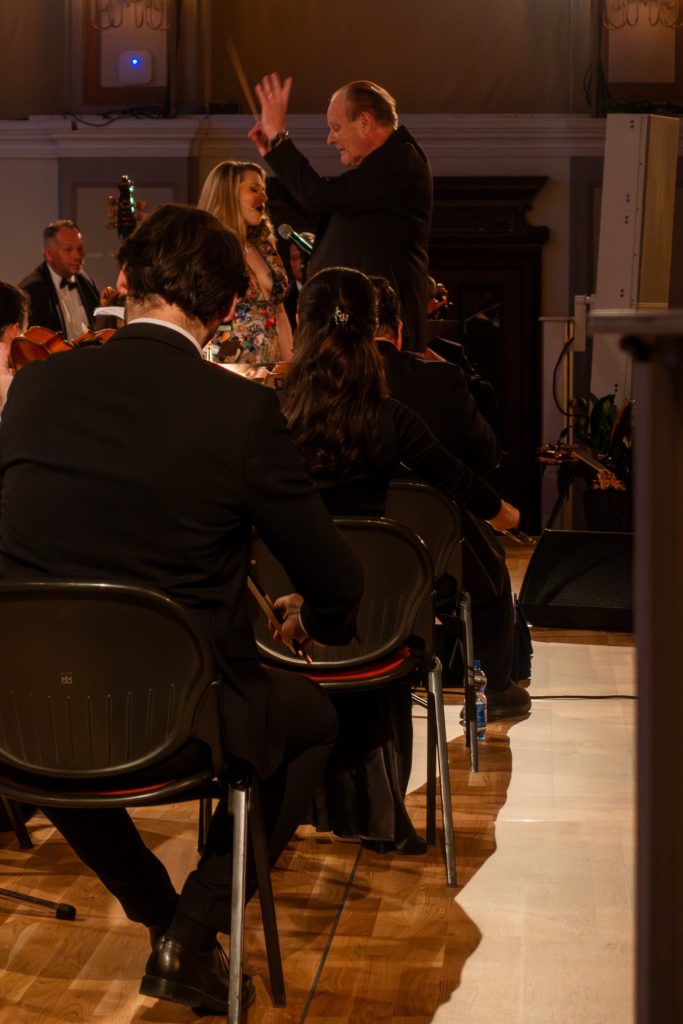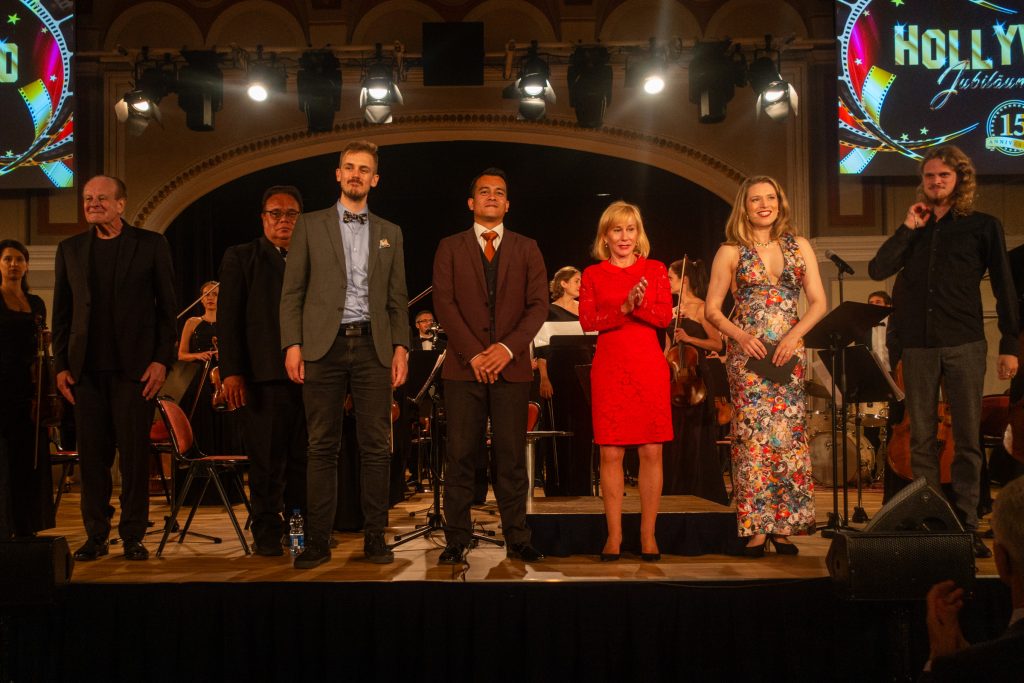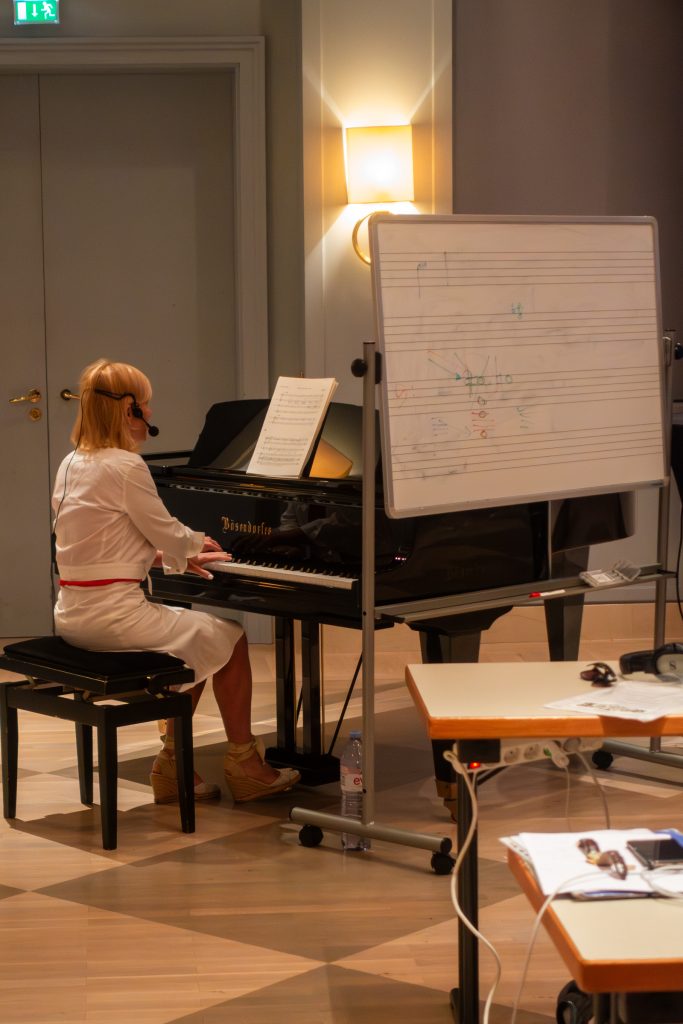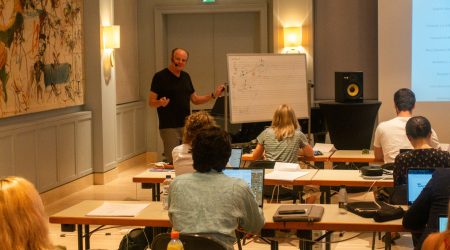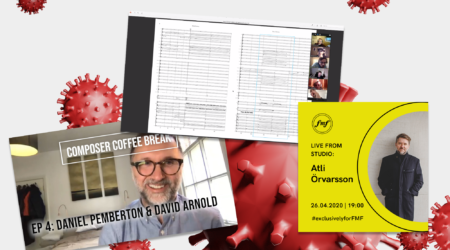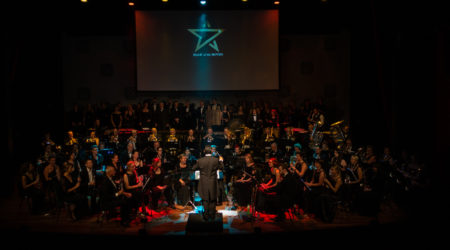I have been traveling worldwide to enjoy film music concerts and festivals. Especially festivals often have side events during which you can learn about creating music for film and other media. These events are always fun to attend and informative, but they can also be quite shallow sometimes – probably to make them accessible for a wider range of people. As a result, I am usually familiar with most of the topics being discussed, since I have been involved with the film music industry for a while now, and as an amateur musician, I have a general feel for how music works. That is why I was excited when I was invited to join the Hollywood Music Workshop in Baden bei Wien, Austria, for a couple of days, to sit in during one of their courses together with the students to learn from some of the best Hollywood has to offer. As an icing on the cake, I also attended their concert, including the rehearsals, that celebrated the 15th anniversary of the Hollywood Music Workshop.
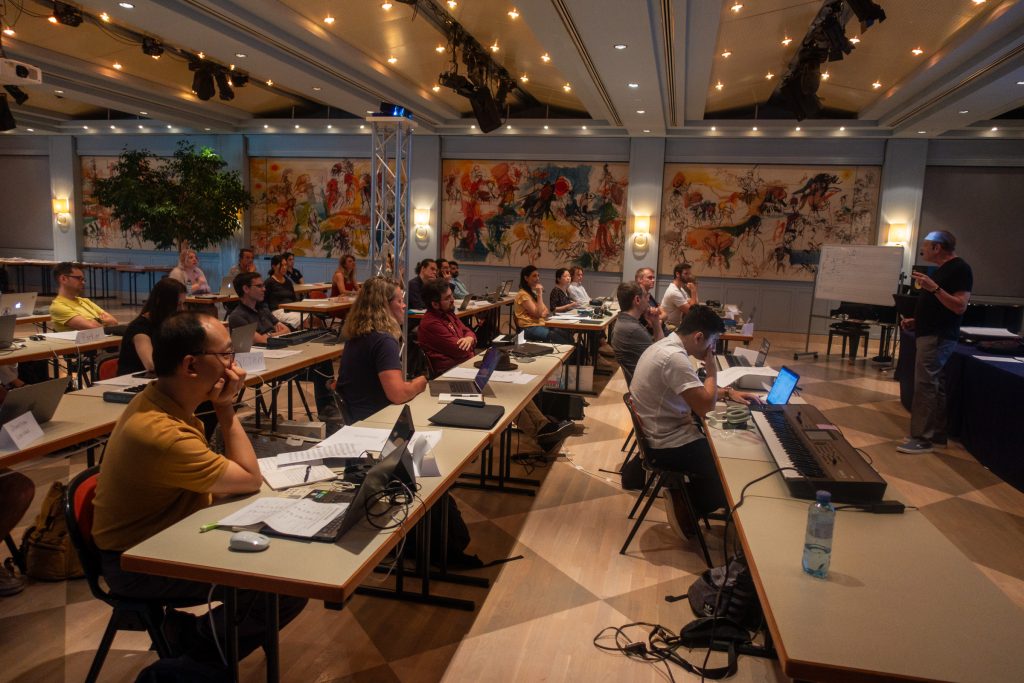
About the workshop
The workshop is an annual non-profit summer academy with multiple film music courses hosted in Congress Centre Casino Baden. The founders are Lilo Bellotto and Dimitrie J. Leivici, who are both very involved with music. Lilo Bellotto is a former musical theater singer and has had leading roles in musicals across Austria. Leivici’s career is even more exciting for film music enthusiasts because, as a studio violinist, he has performed as a concertmaster on over 1000 soundtracks such as Avatar, Titanic, Pirates of the Caribbean, Toy Story and Indiana Jones.
During this summer, big names from the film music industry give a wide range of courses.
These are:
- July 8-11 – Conducting with Amy Andersson
- July 13-20 – Orchestrating and arranging with Conrad Pope and Nan Schwartz
- July 22-27 – Live recording with Conrad Pope and Dimitrie J. Leivici
- July 29-31 – Composing for Drama with John Lunn
- August 2-4 – Musical Storytelling with Anne Kathrin Dern
I was invited to join the course with Conrad Pope and Nan Schwartz for two days. While sitting in the back of the room, I could observe and listen to all the topics being discussed.
Orchestrating and arranging with Conrad Pope and Nan Schwartz
You may never have heard of Conrad Pope before, but he has been very important in the film music industry for many decades. Almost all composers who write orchestral film music use an orchestrator, a person who translates the music coming from the composer – ranging from a couple of bars on a music sheet to computer-generated music files – to music on paper that musicians play during recording sessions. One of the best in that line of work is Conrad Pope, who has worked with many high-profile names in the film music industry, such as Hans Zimmer, Howard Shore, Alexandre Desplat, James Horner and the best of the best: John Williams.
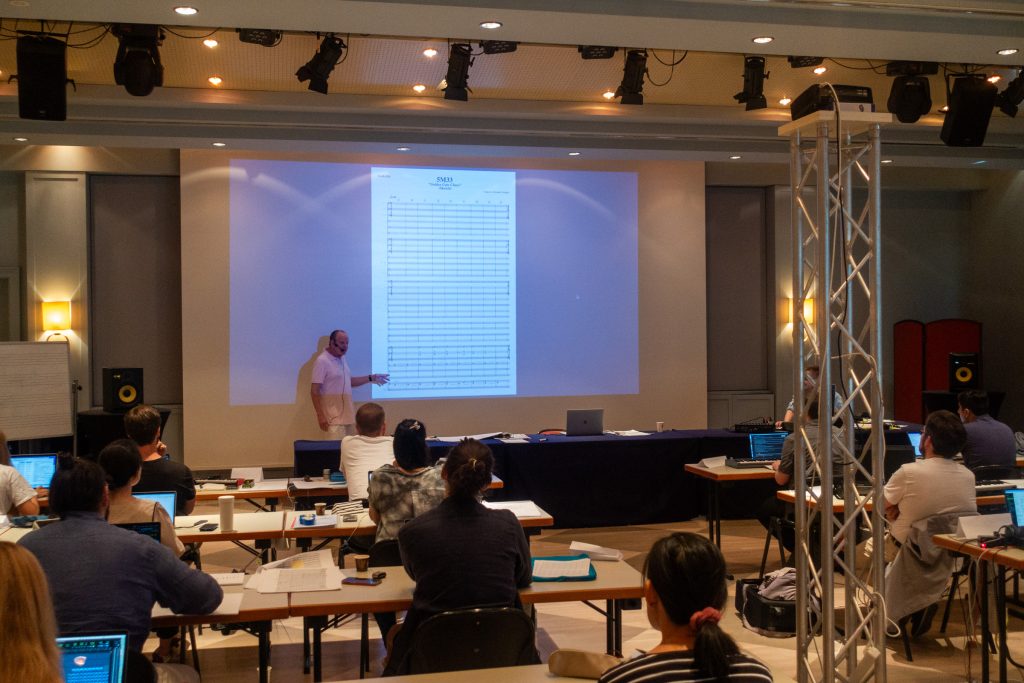
Walking into the course room already offered a sight to behold. The first thing you notice is all the musical keyboards lying on tables in front of the students, together with their laptops. The second thing was all the printed-out scores lying on tables alongside the wall, containing Pope’s orchestrations for quite some iconic movies, including Mouse Hunt, Harry Potter and many more; most of them hand-written. I was obviously not allowed to take photos of them, but it was quite a treasure to scan through.
During Pope’s course, I witnessed all kinds of activities. The students could, for example, have their assignment played to the whole room, such as writing a full orchestration on a simple melody. Pope then analyzed them, gave feedback and added his point of view. He also showed scenes from movies, which he has orchestrated, and talked about his experiences. During many of these activities, there was a score (a music sheet containing all the parts for the musicians to play) on the big screen, but also on the laptops for the students to analyze.
What bound all the topics during the course together were Conrad Pope’s stories. Having been in the industry for so long, and having worked with so many composers and other people in the film music industry, he had many anecdotes to tell. What I loved about those is that you learned so much about composers and all the foolish things happening while recording the music. Each story also contained helpful information for the students. If you listened carefully to Pope, you could discern something important in every sentence he spoke. Some important of advice I picked up is that you have to orchestrate with a focus on the orchestra and musicians that are going to play the music, but the one that stood out to me is that you have to compose and orchestrate to what the scene needs, not what you see; except for cartoons.
The course Nan Schwartz led was slightly different because she followed a different career path than her husband. After telling her story about how she became a Grammy-winning arranger for famous singers and other artists, she explored some of the arrangements she made for famous singers, like Natalie Cole, with the class, also with a score on the screen. During her time she also sat down behind the piano to explain her arrangements.
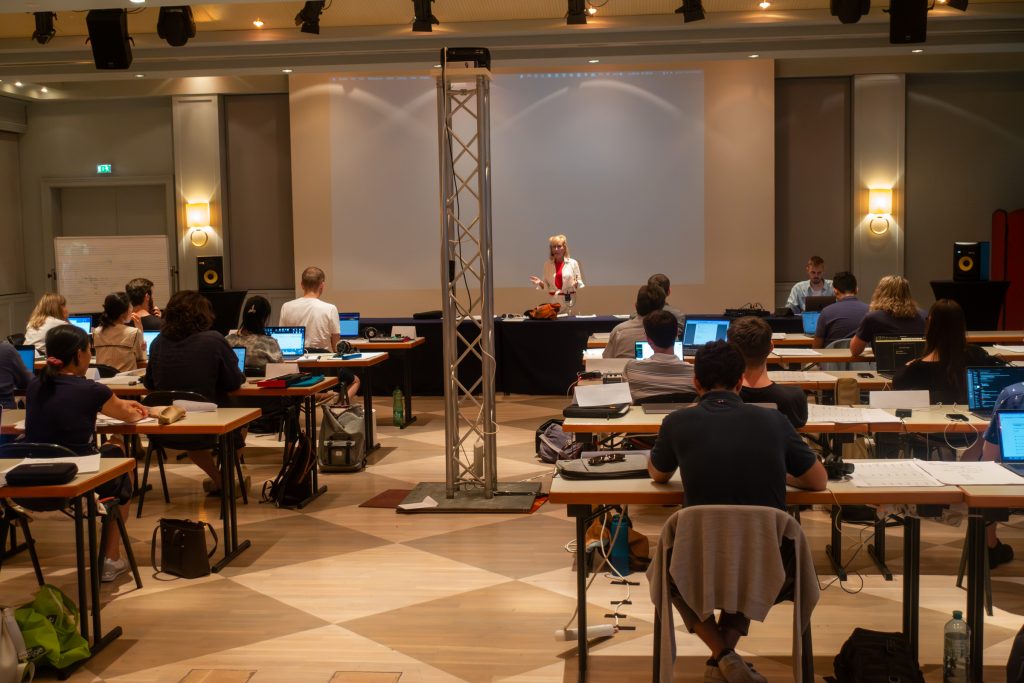
When there was no class in session, Schwartz and Pope were available for private lessons with the students. Spending time with such experienced people and receiving personal advice is undoubtedly extremely valuable.
Both Pope and Schwartz had so many informative stories to tell, and I have learned quite a lot from them. Sadly, they were also very personal from time to time, not only with regard to themselves but also to the other people involved, which does not allow me to quote them in this report. I guess you have to join the course next year to benefit from their insights. If you cannot wait that long, stay tuned for my interview with Pope, which will be released soon.
Hollywood Anniversary Concert
The casino does not only host the workshop classes, but there is also a gorgeous small concert hall on the second floor, ideally suited for a film music concert, which has been performed there for many years. During this edition the Hollywood Music Workshop was celebrating its 15th anniversary. For each edition the HMW Orchester is formed, which was conducted by Pope, Schwartz and the workshop’s executive manager, Michiel de Boer, this year.
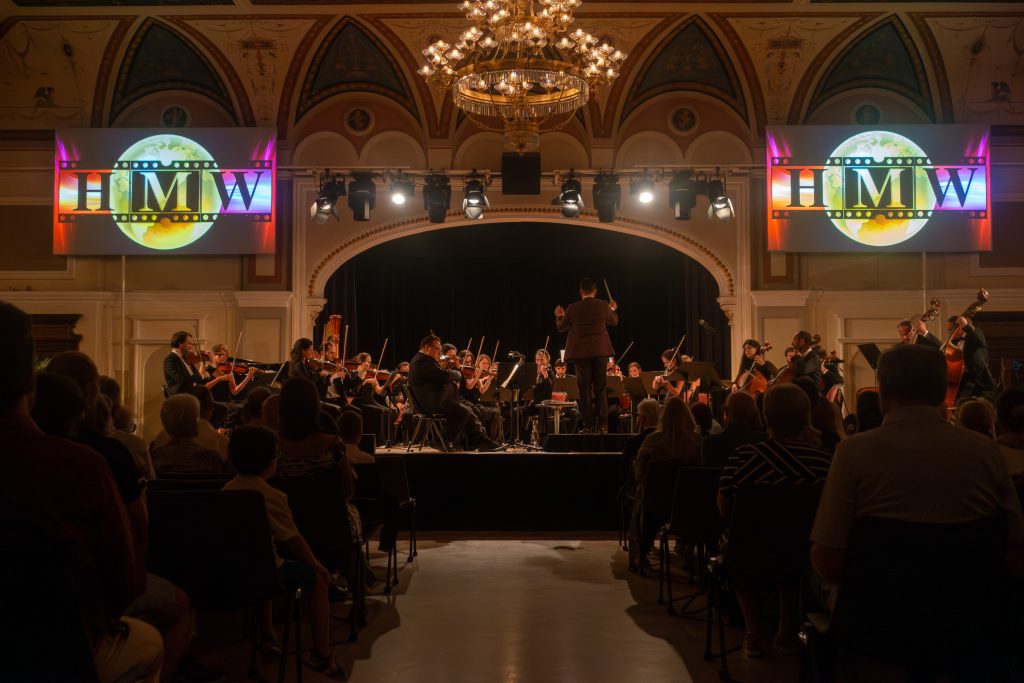
It is a huge benefit for the concert that the HMW has Conrad Pope and Nan Schwartz on board. Since they have worked on so many orchestrations for soundtracks, the workshop had access to unique material. Almost the entire program consisted of music that I had not heard before at a concert. There were some familiar pieces, like Jurassic Park and Harry Potter, but most of the music was new to me, like the piece from An American in Paris or “Unchained Melody” from Ghost.
Another unique experience was the combination of a host and a vocalist in one person. Arabella Fenyves was not only a perfect host of the evening, combining German with a bit of English for the foreigners in the audience, but she also featured as a skillful vocalist. She sang, for example, a gorgeous and unique arrangement by Schwartz, who also conducted this piece, of “When You Wish Upon a Star” from Disney’s Pinocchio. Yet, my highlight of the night was her brilliant performance of A.I.
In addition to music from the movies, there was also room for other workshop pieces. One was “HMW Fanfare,” written by Justus Berger, who provided technical support during the concert and the courses. The other was the final piece of the evening, “Clouds over Baden,” composed by Rolf Gustavson, the workshop administrator. The audience, including an official from the local government, was quite impressed by the piece. There were even talks about making it the official hymn of the town.
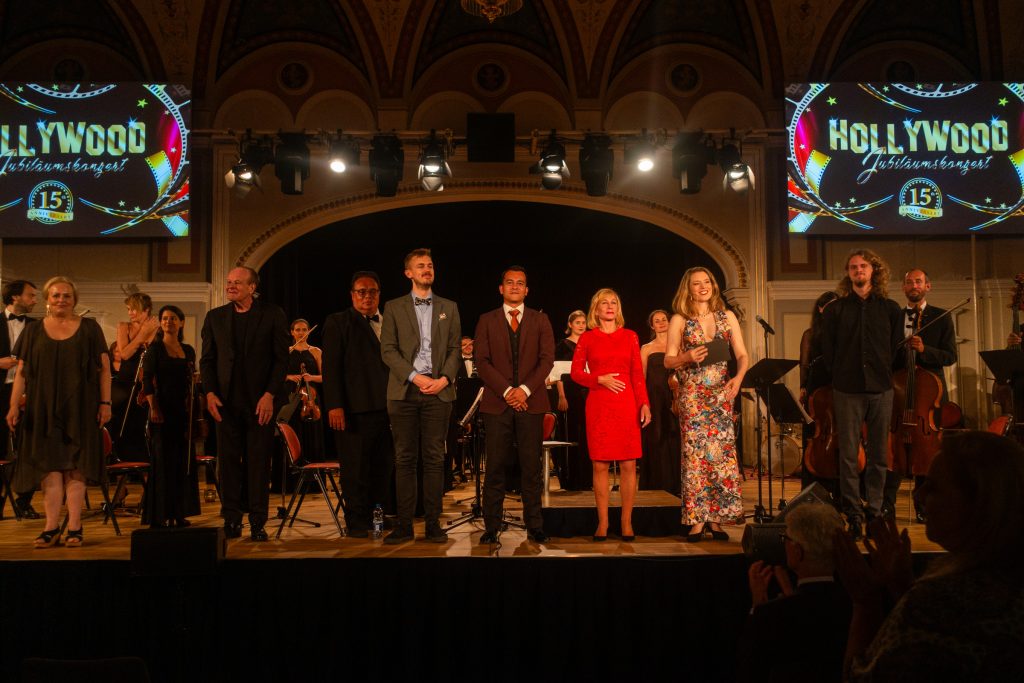
The concert was a wonderful experience for me. I have attended many events over the years, but this concert was special. Most of it was due to the uniqueness of the pieces, but I also found the performance of the orchestra very impressive, especially as it was smaller than a traditional orchestra. While listening, I did not notice that the music was played by fewer musicians than it was meant for. Not being able to hear it means that the orchestrations were perfect for the event, showcasing how vital orchestrations and arrangements are and proving the importance of workshops like the Hollywood Music Workshop.
Concert information
Orchestra: HMW Orchestra conducted by Conrad Pope, Nan Schwartz and Michiel de Boer
Host and vocalist: Arabella Fenyves
Program
- Justus Berger – “HMW Fanfare”
- John Williams – Jurassic Park
- Nacio Herb Brown – “Singin’ in the Rain”
- Henry Mancini – “Moonriver” from Breakfast at Tiffany’s
- Trevor Jones and Randy Edelman – The Last of the Mohicans
- Luis Enriquez Bacalov – Il Postino
- Leigh Harline and Ned Washington – “When You Wish Upon a Star” from Pinocchio (arr. Nan Schwartz)
- Frederick Loewe – My Fair Lady
Intermission
- George Gershwin – An American in Paris
- John Barry – Out of Africa
- Alan Menken – “Beauty and the Beast”
- Vangelis – Chariots of Fire
- Maurice Jarre and Alex North – “Unchained Melody” from Ghost
- John Williams – “Hedwig’s Theme” from Harry Potter and the Sorcerer’s Stone
- John Williams – A.I.
- Rolf Gustavson – “Clouds over Baden”
Conclusion
Austria is one of my favorite countries in Europe. I love visiting it and to be able to combine it with film music and meeting friends and new people, is a perfect treat for me. While I am not a professional musician, I have learned a lot during my days there, not only by observing the course but also by having chats with the participants who came from all over the world, Michiel de Boer, Dimitrie J. Leivici, Justus Berger, Rolf Gustavson and by interviewing Conrad Pope. If you want to work in the film music industry, as a starting composer, or even when you already have a career, you should consider going to these courses to improve your skills. It is an excellent opportunity to learn from the best and a great place to connect with others in the industry.
If I had to describe the workshop in a couple of words, I would say that the organization feels like a family working together towards one goal: spreading the word about creating the best film music possible. I want to thank Lilo Bellotto, Dimitrie J. Leivici and Michiel de Boer for the invitation, but also thanks to Justus Berger, Rolf Gustavson and the participants for the lovely conversations. I hope the workshop will continue to thrive for at least another 15 years to teach composers, orchestrators and other musicians to elevate their skills to a higher level.
Photos
